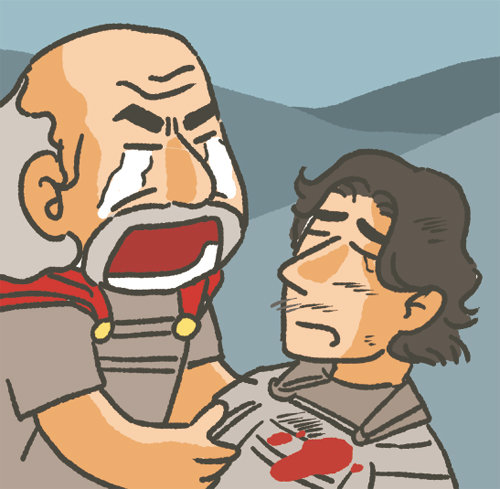Father’s tears
Father’s tears
Posted May. 20, 2020 07:47,
Updated May. 20, 2020 07:47

A plethora of myths tell a story of tears of a mother, but not those of a father. This is why the last chapter of The Iliad by Homer is so special.
Priam, the last king of Troy, rolled on the ground crying when he found out his son’s body was not buried and being treated with disrespect. Hector’s corpse was being dragged by Achilles’ chariot, and losing face was certainly not Priam’s concern. It seemed that killing Hector was not enough to ease Achilles’ anger because Hector killed his friend. It was the level of cruelty that enraged gods.
King Priam decided to visit Achilles who had been engulfed by anger. His wife tried to stop him but to no avail. The king said he did not fear death as long as he could cry holding his son in his arms. He filled a wagon with treasures to pay for his son’s body and set off. When he arrived, he pleaded with Achilles on his knees, invoking the memory of Achilles’ father who was as old and helpless as he was. He cried miserably in front of an enemy who killed his son and mistreated his body for he was the father before he was a king. And something miraculous happened. Reminded of his own dad who would be waiting for him at home, Achilles started crying. He was destined to die young, and his father would cry just like the old man in front of him. In the end, he handed over the body after washing, greasing and clothing it.
When Hector’s body was returned, the entire Troy cried. Everyone, including Hector’s mother, wife and sons, cried their hearts out, which would not have been possible if Priam had not risked his life and gone to see the enemy. “The Iliad” by Homer is a testament to the fact that fathers as well as mothers cry. Society tells fathers to hold back tears, but they cry.







